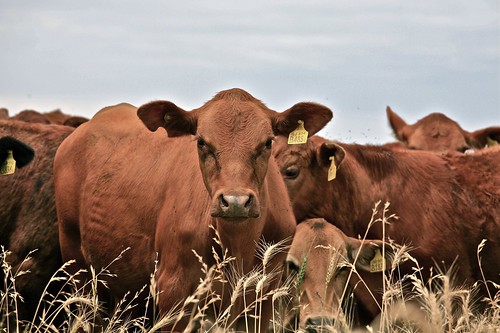
A week after we learned that a killer Salmonella superbug spread through Cargill turkey, new science shows that on-farm decisions to go organic can drastically reduce the antibiotic-resistant bugs on meat. Keep Antibiotics Working (KAW), which includes IATP’s Dr. David Wallinga, has issued a press release below.
New evidence: Changing to organic farming reduces antibiotic resistance
New science connects the farm to the hospital
Washington, D.C. – One week after the outbreak of Salmonella spread through ground turkey raised the specter of drug resistant food-borne infections, a new scientific study released this week shows that changing farm practice can help stem the spread in poultry meat of another bug that is a major cause of expensive resistant infections in hospitals.
The study, by researchers from the University of Maryland and the FDA, compared poultry farms where antibiotics were used with organic poultry farms that had recently switched to antibiotic-free production. The new organic farms had much lower amounts of resistant bacteria than the conventional farms.
"What this study tells us is that conventional, rather than organic farms, seem to be the generators of resistance to gentamicin and penicillin," said David Wallinga, MD, a physician at the Institute for Agriculture and Trade Policy and a steering committee member of the Keep Antibiotics Working coalition. "That‟s important because these are the „go to‟ medicines that doctors rely on for treating patients with really serious infections of the heart, blood and urinary tract that are caused by enteroccal bacteria. These are exactly the kind of infections that can kill people in hospitals.”
Per the study, for Enterococcus faecalis, which has been shown to spread from food animals to humans, 42 percent of the bacteria from conventional farms was multi-drug resistant but only 10 percent of the bacteria from organic farms was. Gentamicin and penicillin resistant enterococci were only found on conventional farms.
The study found significantly lower resistance among enterococci bacteria to six different human drugs. Enterococci are a type of bacteria found in the human gut that can cause illness when they infect other parts of the body. Resistant enterococci are a particular problem in hospitals, where they kill patients. Food animals and food are recognized as a potential source of resistant enterococci in humans.
“As more and more people die from increasingly costly drug-resistant infections, it's clear that we need to protect antibiotics. Moving from conventional farming to organic farming is one way to fight this crisis,” Wallinga added.
The study can be found at http://ehp03.niehs.nih.gov/article/fetchArticle.action?articleURI=info%3Adoi%2F10.1289%2Fehp.1003350.
Keep Antibiotics Working (KAW) is a coalition of health, consumer, agricultural, environmental, humane, and other advocacy groups, with more than 11 million supporters, dedicated to reducing the inappropriate use of antibiotics in livestock.
